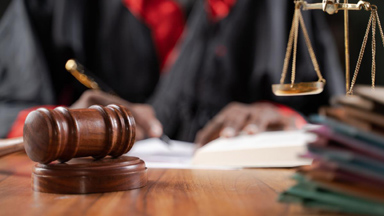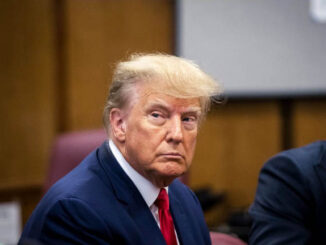
Solutions to address the key issues of misconduct and corruption and appointments exist, while also keeping the independence of the judiciary intact

The facts in the Justice Yashwant Varma case are indeed disturbing. In an apparent accidental fire in an outhouse on the premises of his official bungalow in New Delhi (while he was not in town), the fire department seemed to have found several sacks of high value currency notes (₹500), which had been burnt, some partially. Someone in the police/fire department recorded a video when the firemen were trying to douse the fire.
The next evening, the Delhi police chief reported the incident to the Chief Justice of the Delhi High Court, where Justice Varma is a senior judge. This was then conveyed to the Chief Justice of India (CJI), who convened a meeting of the Collegium. A decision was taken to repatriate Justice Varma back to his parent court, the High Court of Allahabad. Justice Varma’s response was also sought where he denied that any money had been stored in that room and even suggested that it might be a conspiracy against him.
However, when the news of the incident spread, it caused such a public furor that the CJI convened other meetings of the Collegium and decided to institute an in-house inquiry conducted by a three-judge committee which included two Chief Justices of the High Court of Himachal Pradesh and Punjab and Haryana, and a lady judge from the Karnataka High Court. The CJI also sought the call records of Justice Varma as well as those of his staff for the last six months. The CJI decided to release all the information related to the incident in the public domain, which included the video of the currency notes being found. These steps were indeed a case of welcome transparency. The CJI thereafter advised the Chief Justice of the Delhi High Court not to assign any judicial work to Justice Varma till such time as the inquiry is completed. Though Justice Varma’s explanation does not appear to be very credible, one should still await the findings of the inquiry committee. There is no doubt that the report of the committee will shed light on what really happened.
A triggering of the government
The public furor that erupted has enabled the government to fish in the troubled waters of the judiciary, and the government is now using this incident to try and retake control of the power of appointing judges. To this end, the Vice-President of India (and the Chairman of the Rajya Sabha) has invited political leaders from the government and the Opposition to discuss why the National Judicial Appointments Commission (NJAC) Act, which was struck down by the Supreme Court of India as violative of the basic structure of the Constitution, should not be brought back. The NJAC Act essentially formed an appointment committee comprising the CJI, two senior judges of the Court, the Union Law Minister and two eminent persons to be nominated by a committee comprising the CJI, the Prime Minister of India and the Leader of the Opposition in the Lok Sabha. It also placed the secretariat of this commission with the Law Ministry. Seven judges of the Court held the view that this would provide substantial scope to the government to interfere with judicial appointments and that would erode the independence of the judiciary, which is part of the basic structure of the Constitution. Thus, despite the NJAC Act having been brought by way of a constitutional amendment, it was declared invalid by the Court.
Government’s game plan
In the recent past, the Narendra Modi government has seriously interfered with the appointment of judges despite the law being that the power of selection is with the Collegium of the Supreme Court and that the government can only return the name of the judges selected by the Collegium once to the Collegium if it is dissatisfied. Thereafter, if the Collegium reiterates its choice, the government is left with no option but to notify the appointment. However, in recent years, the Modi government has stymied the selection of independent judges by the Collegium, by sitting on recommendations, sometimes for years, without any response, and without notifying the appointments. Even when it is forced to respond and it returns the names with objections, and thereafter, even after it is unanimously reiterated by the Collegium, it has still not notified the appointments of many judges who are considered ‘inconvenient’ to the government. At the same time, it is quick to notify the appointments of those judges that the government likes.
During these years, on several occasions, the Collegium appears to have bent backwards to appease the government by selecting some judges who are favored by the government in order to get some of those that it has recommended, appointed. This has led to the appointment of many judges who are either committed to the government’s Hindutva ideology or who are weak and unable to resist the diktats and wishes of the government. As a result of this, the independence of the judiciary has been substantially eroded in recent years.
Now, using the Justice Varma case, the government is seeking even greater control and say in the matter of appointments of judges. If the government succeeds in this attempt, it will no doubt erode the independence of the judiciary — already in a precarious state — even further. This government has been trampling on the fundamental rights of people, rampantly misusing the enforcement agencies and bulldozing the rule of law by using bulldozers. In these circumstances, it is essential for public opinion and the Opposition to see through the government’s game plan and resist such an attempt. There is no doubt that the collegium system of the appointment of judges is far from perfect and that its lack of transparency and any proper criteria for selecting judges have led to much nepotism and improper appointments through the Collegium as well. However, the solution is not greater government control. The problem with the Collegium is that it comprises sitting judges who are very busy with their judicial work and have little time to devote to this task.
Appointment of judges, issue of corruption
Every year, hundred judges of the High Court and the Supreme Court are to be selected. In any proper selection process, at least 1,000 candidates have to be examined for their relative merits and demerits. For this, the right criteria and method to judge people on those criteria should be devised. Unfortunately, this has not been done. The solution is to have a full-time judicial appointments commission, comprising retired judges and other eminent public men, who are totally independent of the government, and with a secretariat under their control which would select judges in a transparent manner. This would be a much better solution to address the problem of the appointment of judges — and what the Campaign for Judicial Accountability & Judicial Reforms has been advocating for a long time. However, the particular problem highlighted by the Justice Varma case is the problem of corruption in the Indian judiciary, which also needs a solution. The Constitution only provided for impeachment as a method. But this method has not been found to be practical or desirable because it starts with the signatures of 100 Members of Parliament to begin with, and ends with a vote in both Houses of Parliament.
Mixed bag for Supreme Court collegium in judicial appointments
Both are political processes, which often get politicized by political parties. This is why no judge has ever been successfully impeached in the history of the country, despite public knowledge that there is much corruption in the higher judiciary. What we need is a high-powered and full-time judicial complaints commission comprising five men/women who are independent of the government as well the judiciary. This complaints commission can receive complaints against judges of the higher judiciary from people. If they feel that there is a prima facie case, they can have the matter investigated or hold the trial of the judge through another committee, much like the judges inquiry committee.
However, the commission should decide what needs to be done with that judge, and their decision should be final, subject to judicial review only in exceptional circumstances. These matters should not go to Parliament at all. This would address the problem of judicial misconduct and corruption to a substantial degree.
(Prashant Bhushan is a Public Interest Lawyer practicing before the Supreme Court of India)





Be the first to comment